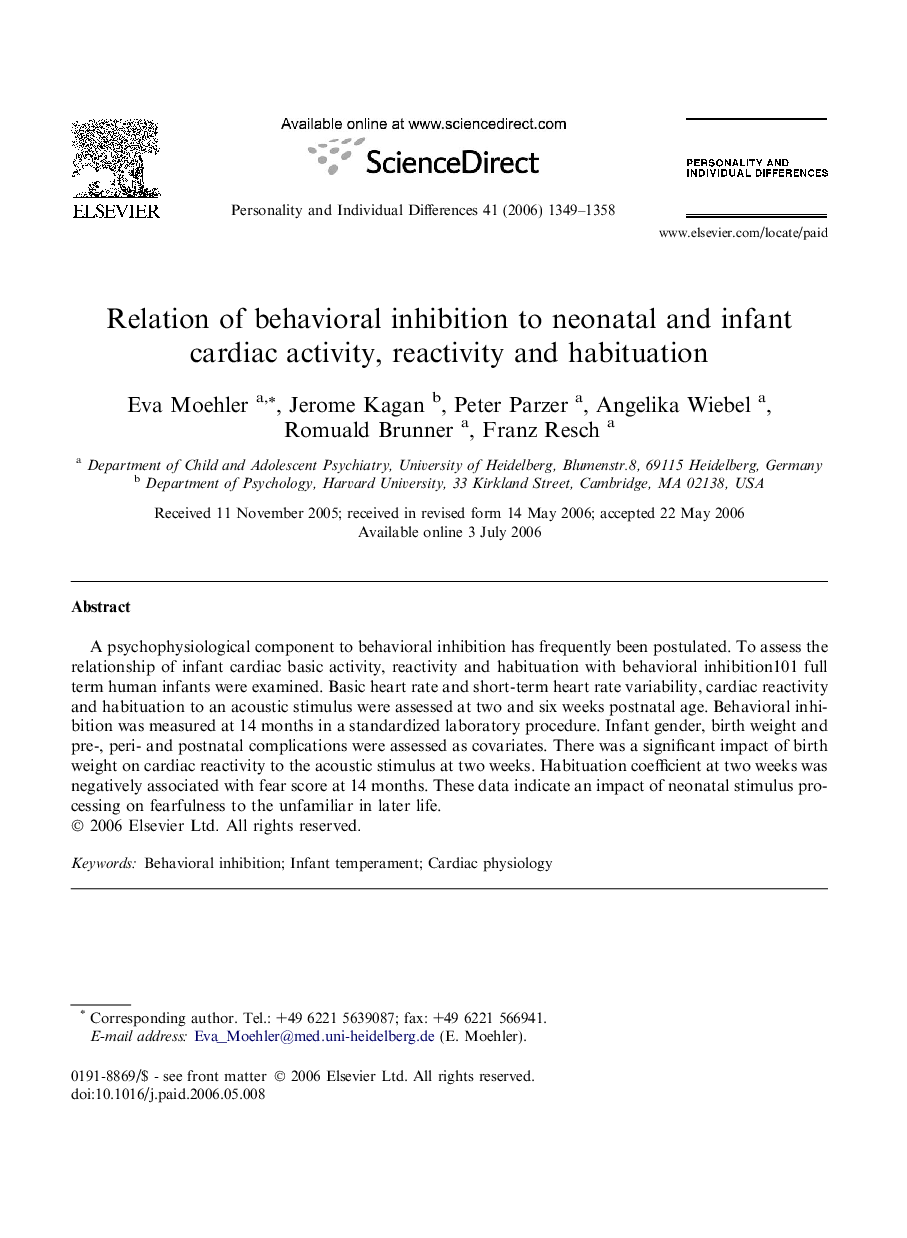| Article ID | Journal | Published Year | Pages | File Type |
|---|---|---|---|---|
| 893307 | Personality and Individual Differences | 2006 | 10 Pages |
A psychophysiological component to behavioral inhibition has frequently been postulated. To assess the relationship of infant cardiac basic activity, reactivity and habituation with behavioral inhibition101 full term human infants were examined. Basic heart rate and short-term heart rate variability, cardiac reactivity and habituation to an acoustic stimulus were assessed at two and six weeks postnatal age. Behavioral inhibition was measured at 14 months in a standardized laboratory procedure. Infant gender, birth weight and pre-, peri- and postnatal complications were assessed as covariates. There was a significant impact of birth weight on cardiac reactivity to the acoustic stimulus at two weeks. Habituation coefficient at two weeks was negatively associated with fear score at 14 months. These data indicate an impact of neonatal stimulus processing on fearfulness to the unfamiliar in later life.
